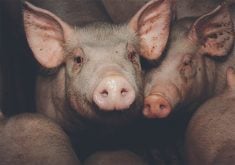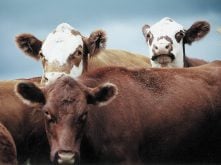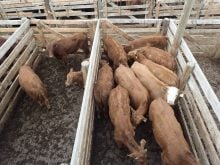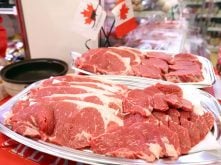ACME, Alta. – The Alberta Pork Producers Development Corp. is separating its marketing and promotion divisions into two independent companies.
The Western Hog Exchange will become a non-profit company that buys slaughter hogs while the Alberta Pork Producers Development Corp. will handle pork promotion, research and lobbying. This latter side of the corporation is called universal services and will work for all Alberta producers.
Known as Alberta Pork, universal services receives $1 per hog sold, while the hog exchange works on a service fee of about one cent per kilogram, depending on market prices. No check-off dollars go to the hog exchange.
Read Also
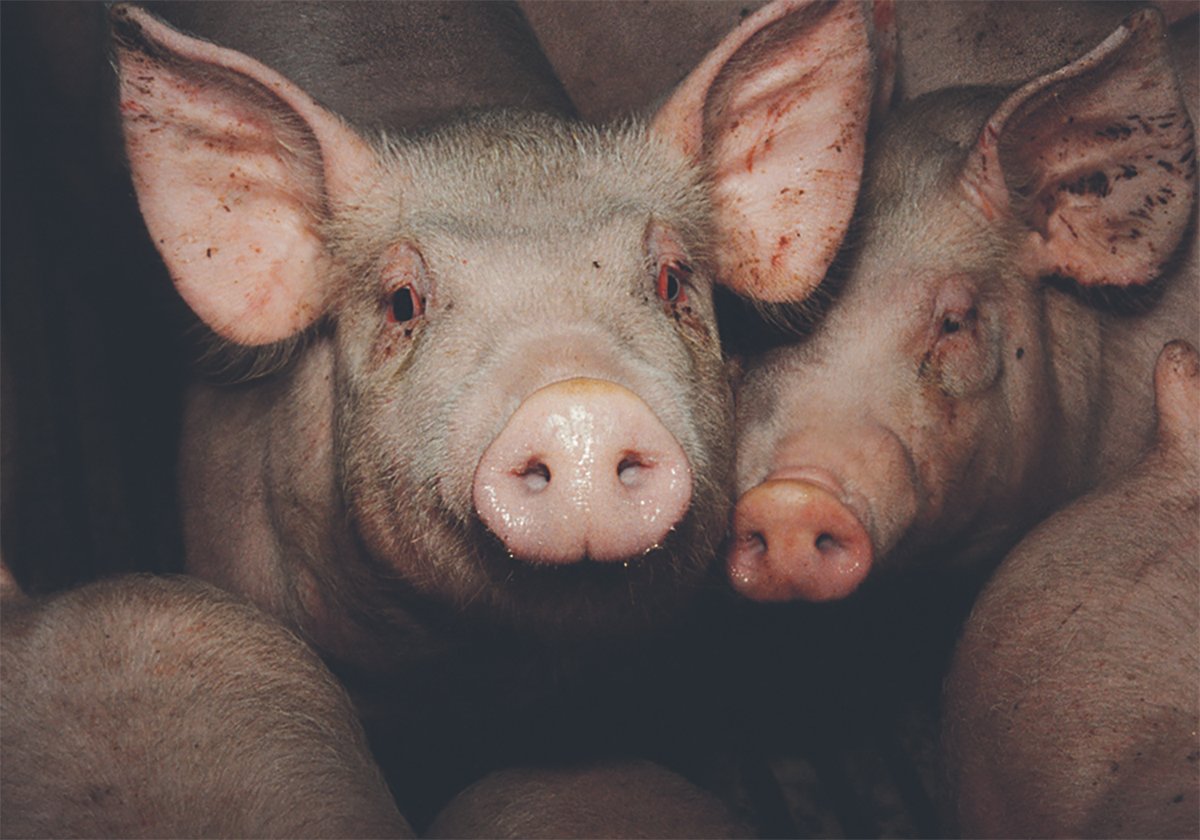
The Western Producer Livestock Report – October 30, 2025
Western Producer Livestock Report for October 30, 2025. See U.S. & Canadian hog prices, Canadian bison & lamb market data and sales insights.
While many producers say the split is long overdue, some have concerns about how assets will be divided, including assembly yards and buildings owned by the corporation.
During a producer meeting in Acme, about 60 kilometres northeast of Calgary, Dave Price of Sunterra Farms argued the new company should have to pay a fair price for various assets because Alberta hog producers originally bought them.
“The decision to split is the right one but each has to be restructured responsibly,” said Price. “The Western Hog Exchange should not expect favorable treatment from the APPDC, especially when they have a signed and exclusive agreement with one packer.”
He proposed that any physical or financial assets held by the Alberta Pork Producers Development Corp. with a fair market value of more than $15,000 should be sold by public tender or through advertised public auction.
His resolution is expected to be debated at the pork producers’ annual meeting later this month.
Director Doug Hall said the assets issue caused heated debate at the board level.
Pork producers corporation lawyer Bill Shores said the board believes the assets should go to the new company to develop a strong marketing arm.
“The board’s view is that they (producers) should not be reimbursed.”
Mack Rennie, manager of the Western Hog Exchange, said the assets include five assembly yards at Grande Prairie, Morinville, Balzac, Red Deer and Lethbridge, as well as an office building in Edmonton and some cash.
“They are not the producers’ assets. Those assets belong to the corporation,” said Rennie.
The exchange buys hogs from farmers and sells them to a packer. Most of them end up at Fletcher’s Fine Foods in Red Deer, but are also sold to others, said Rennie.
Delegates and directors decided on the division last fall following a producer vote on whether they wanted to stay with the open market. They did not get enough votes, so ballots weren’t counted and it was assumed people wanted the open market.
The Western Hog Exchange will have its own elected board of directors made up of producers who sell at least 100 hogs a year through the exchange.
Those who wish, can become shareholders in the new entity. To qualify they must sell 100 hogs through the exchange and will receive one share no matter how many pigs are sold through this corporation. The share is lost if the producer does not sell 100 hogs in a year.
Holding shares gives a producer the right to vote for directors or run for a seat on the seven-member board. The board includes four directors, who sell 80 percent of their production to the hog exchange, while the other three do not have to meet that criteria.
There will be no corporate link between the exchange and the pork producers corporation.
The new corporation will not pay dividends and must ensure it provides marketing services at the same or better level as it does today. An interim board will be in place once all has been approved.
By becoming a separate entity, the hog exchange hopes to be more innovative in what it can do, said lawyer Shores.
The Alberta Agriculture Products Marketing Council, which governs Alberta pork producers, said a lot of details must be worked out before the split can proceed.
“There’s still a lot of talking to be done. This is not a done deal as far as the marketing council is concerned,” said the council’s Mike Pearson.



